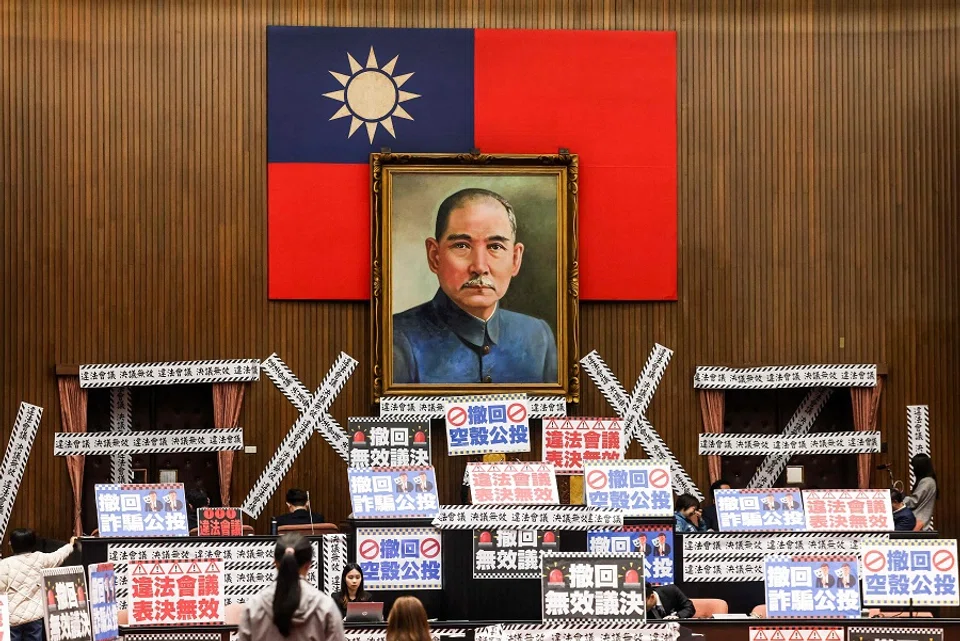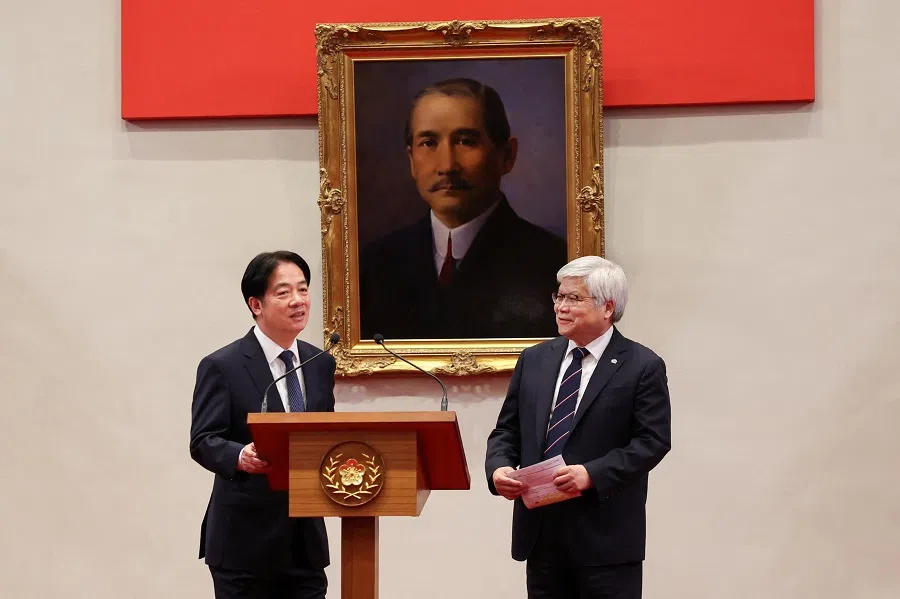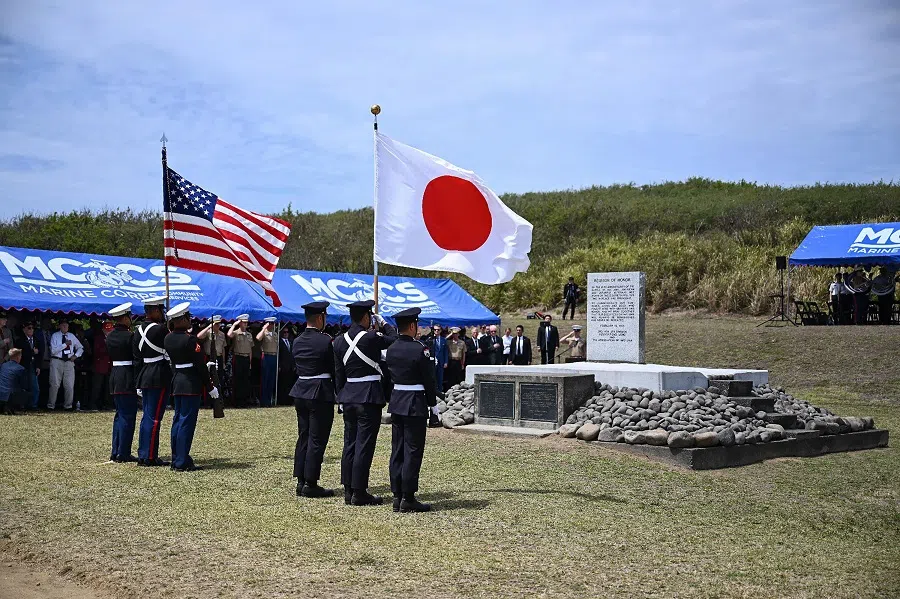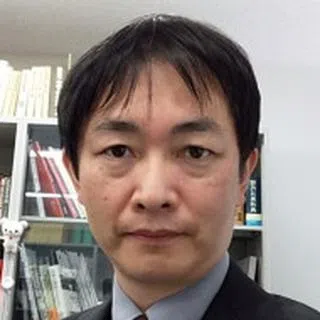Japanese academic: Is Taiwan still a strategic bargaining chip under Trump 2.0?
Within the first 100 days of Donald Trump’s second term as US president, he has ruffled feathers and caused consternation with his various announcements and comments. Japanese academic Momma Rira looks at Trump’s moves and what they mean for the world, and in particular Taiwan, given its unique position.

Since Donald Trump started his second term as President of the United States in January 2025, four years after his first term, he has clashed with many countries. He has boasted of making Canada the 51st state of the US, and said he wants to acquire Greenland and “take back” the Panama Canal, sparking strong opposition from the countries involved.
Taiwanese officials from the Lai Ching-te administration who witnessed this US-Ukraine summit are getting increasingly anxious about finding a suitable position between Taiwan and the Trump administration.
On 28 February, during a meeting at the White House with Ukrainian President Volodymyr Zelenskyy, Trump declared that “you don’t have the cards right now,” and shifted towards a ceasefire with significant concessions to Russia, effectively excluding Europe from the negotiations. This move has drawn intense attention and condemnation from European countries involved in the conflict. Taiwanese officials from the Lai Ching-te administration who witnessed this US-Ukraine summit are getting increasingly anxious about finding a suitable position between Taiwan and the Trump administration.
Trump’s negotiation style disadvantageous to Taiwan
As of the end of March, the Trump administration’s strategic documents have not been released, but the Lai administration has already proposed measures to align with Trump’s policies. One of these measures was the announcement on 6 March by President Lai Ching-te and TSMC Chairman C.C. Wei from the Presidential Office, that Taiwan will expand its investment in the US by an additional US$100 billion.
Taiwan’s increased investment in the US semiconductor industry could lead to industrial hollowing out in Taiwan, ultimately reducing the US’s motivation to defend Taiwan in the event of a crisis, raising concerns in both political and public circles. While the announcement addresses some concerns, it is seen as a move to suppress internal discontent in Taiwan, highlighting the impact of the Trump-Zelenskyy meeting on the Lai administration.

Trump’s negotiation style is also disadvantageous to Taiwan. The previous Biden administration positioned the US at the centre of multilateral frameworks and included Taiwan within these structures. However, Trump is not fond of multilateral frameworks. He decided to withdraw from the Paris Agreement under the United Nations Framework Convention on Climate Change (UNFCCC), and has announced that the US would withdraw from the World Health Organization (WHO). These are international frameworks that Taiwan values deeply and actively contributes to within the global community, so such moves would undoubtedly deal a significant blow to Lai and his team.
If Trump believes that China’s policies would significantly harm US interests, he may be less inclined to make major concessions to China at Taiwan’s expense.
Still a strategic bargaining chip?
Trump prefers achieving diplomatic results — those that bring economic benefits to the US and personal satisfaction — through one-on-one negotiations with strong leaders, as seen in his praise for Russian President Vladimir Putin and Chinese President Xi Jinping. His meetings with Kim Jong Un, the General Secretary of the Workers’ Party of Korea and North Korea’s Supreme Leader, also reflect this approach.
Trump did meet with Xi during his first term, but those talks failed to alter the broader dynamic of US-China rivalry for global dominance. If there is any glimmer of hope for Taiwan, it lies in the fact that compared to Trump’s first term, China has since grown stronger in national power, military capabilities, and technology, and is more explicitly asserting itself in the competition for global supremacy.
If Trump believes that China’s policies would significantly harm US interests, he may be less inclined to make major concessions to China at Taiwan’s expense. Instead, he may view Taiwan as a strategic bargaining chip, reminiscent of the structural dynamics during his first term in office.
Meanwhile, US Defence Secretary Pete Hegseth made Japan the first stop on his Asia visit, becoming the first defence secretary to attend a World War II memorial ceremony on Iwo Jima. He also announced the beginning of the first phase of reorganising US forces in Japan into a joint command structure to strengthen cooperation with Japan’s Self-Defense Forces. For Taiwan, which sees solid US-Japan military cooperation as a deterrent in the event of a Taiwan contingency, this is undoubtedly a positive sign.

Lai, the ‘weak’ president
Despite such reassuring factors, Trump has a negative view of NATO and the US-Japan security treaty. Taiwan, which does not even have a formal security pact, may face stronger demands from Trump than before to increase its defence budget and purchase more American weapons.
Lai knows this, and has said he will raise the defence budget from 2.5% to 3% of GDP. However, Taiwan’s Legislative Yuan, where the opposition holds the majority, has slashed or frozen numerous budget items — including the defence budget — on an unprecedented scale, so it is uncertain if Lai will be able to achieve his goal. If he fails, Trump might even perceive him as a “weak” president.
... the Trump administration’s stance on Taiwan will likely be influenced by its relationship with China.
Considering these factors, the Trump administration’s stance on Taiwan will likely be influenced by its relationship with China. In other words, if Xi can maintain a friendly relationship with the Trump administration and avoid conflict, US-China relations may head in a more conciliatory direction, potentially leading to a tougher stance toward Taiwan, which lacks strong bargaining chips. Conversely, if China adopts a high-profile anti-American stance and bilateral relations deteriorate, the Trump administration may impose high tariffs and push for even more hardline negotiations with China.
The Lai administration has proposed 17 countermeasures in response to mainland China’s efforts towards unification, which are causing division in Taiwan. However, the political dynamics in the Legislative Yuan have hindered the formation of a sufficient consensus to address these challenges. Additionally, the administration must manage rising skepticism about the US within Taiwan, all while avoiding conflict with Trump and cautiously navigating the complexities of US-Taiwan relations.





